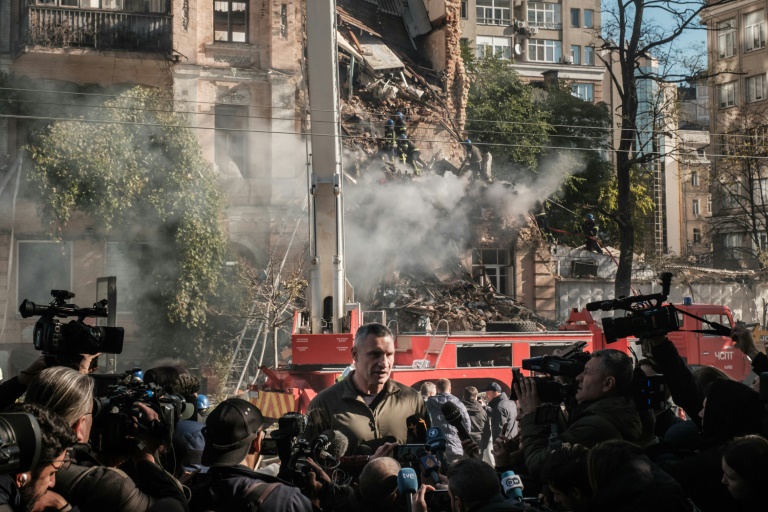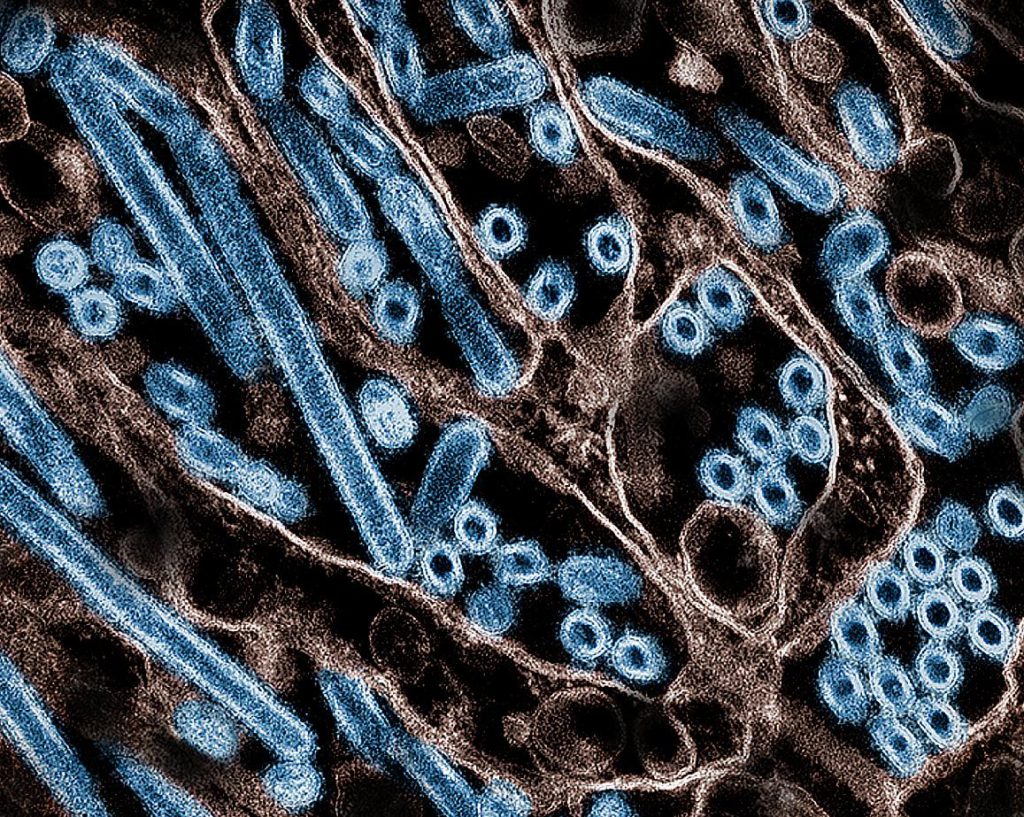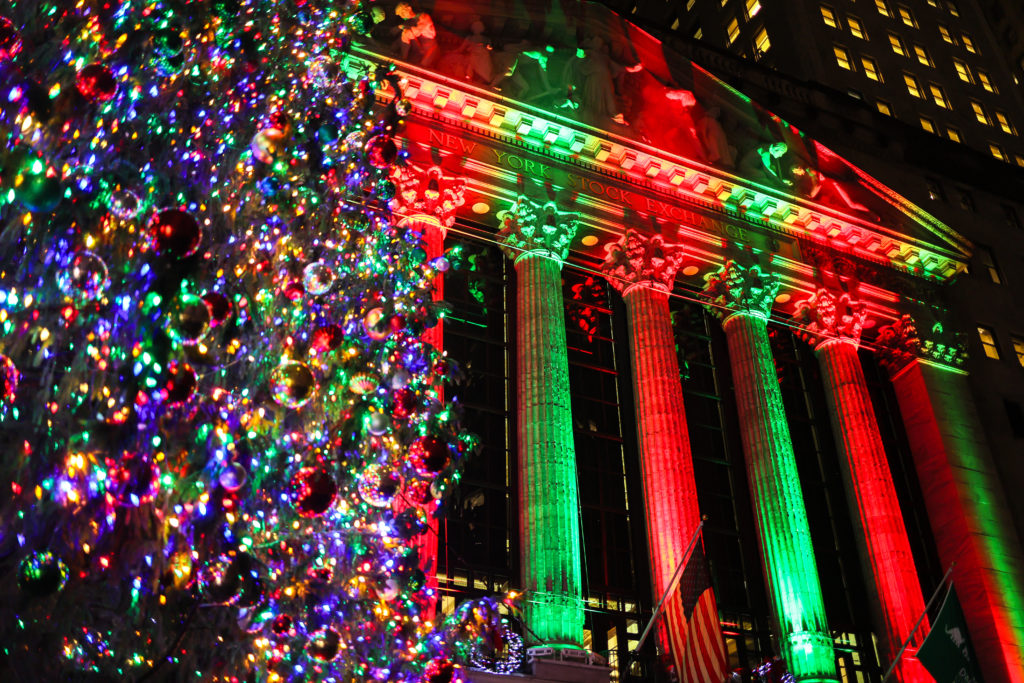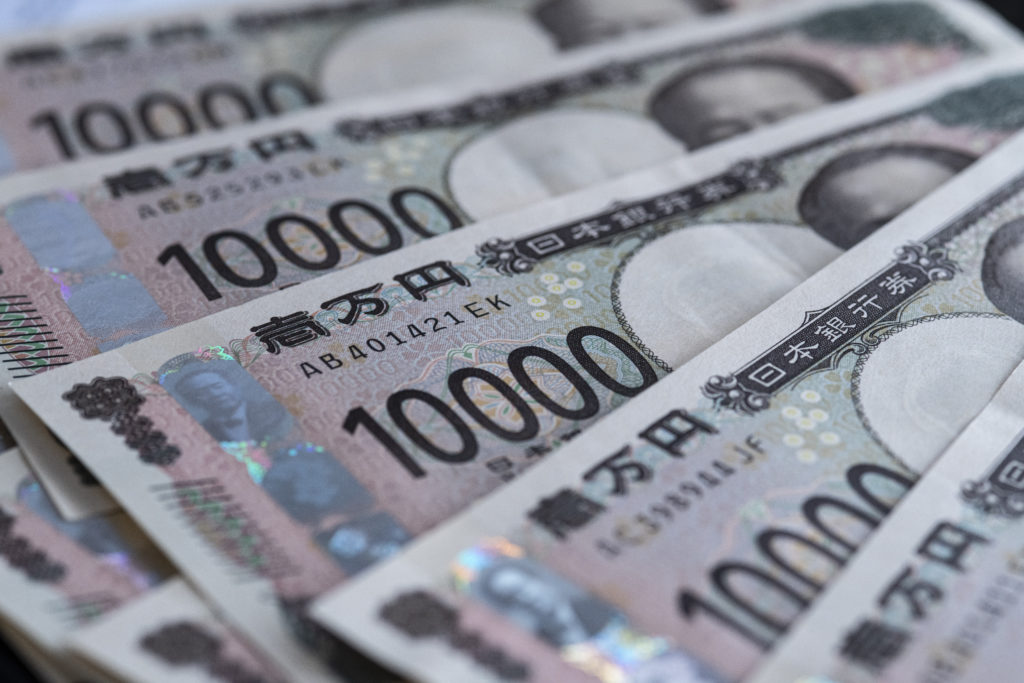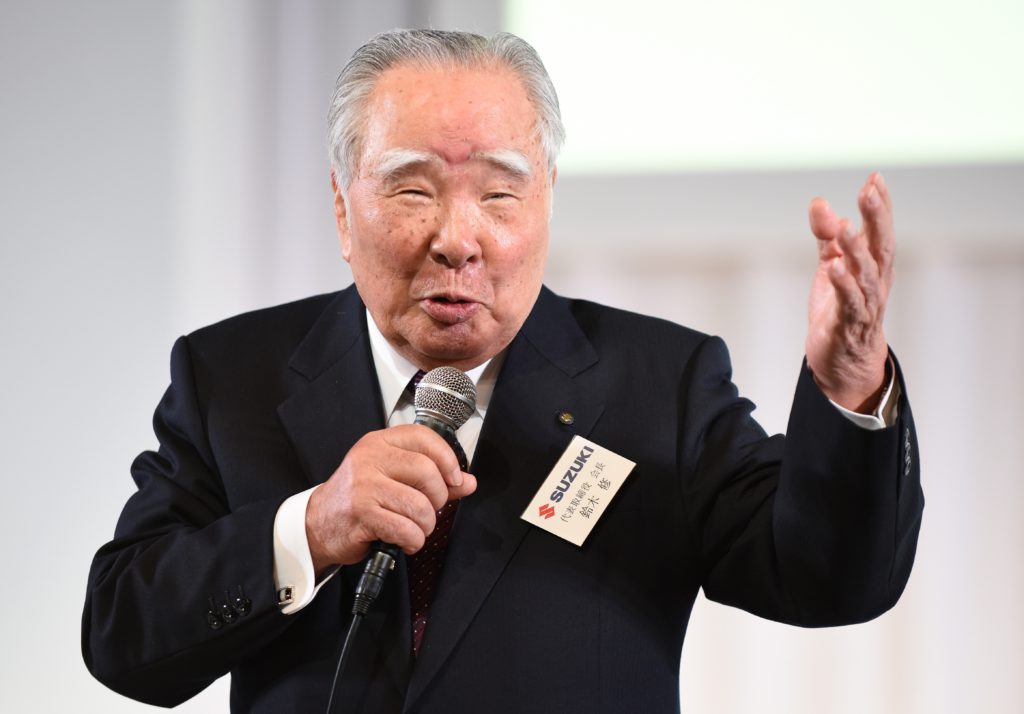Kyiv mayor Vitali Klitschko has urged businesses to limit screens and signage lights for the blackout
Ukraine began curbing electricity consumption on Thursday as it raced to repair infrastructure destroyed by Russian bombing as winter approaches.
Energy-saving measures were put in place across the country after Russian missile and drone strikes destroyed at least 30 percent of the country’s power stations in a week.
Ukraine also warned of a “growing” threat of a new Russian offensive from Belarus, after Minsk and Moscow last week announced a joint force to defend Belarusian borders.
Following blackouts in parts of the capital Kyiv overnight, the city’s mayor Vitali Klitschko urged businesses to limit screens and signage lights “as much as possible”.
“Even small savings and a reduction in electricity consumption in every home will help stabilise the operation of the national energy system,” he said on social media.
Ukrainians have responded defiantly to the attacks.
“It’s not going to change our attitude, maybe we will only hate them more,” said Olga, a resident of Dnipro in central Ukraine who declined to give her last name.
“I would rather sit in the cold, with no water and electricity than be in Russia,” she said.
– Sanctions on Iranian drones –
Russia invaded Ukraine in February and quickly seized more than 20 percent of the country but has lost ground after a series of battlefield defeats in recent weeks.
Moscow has retaliated by annexing the areas it holds and launching a wave of strikes on energy facilities, including with what Kyiv and Western powers said are Iranian drones.
Russia and Iran have denied the use of such drones in Ukraine, but the EU on Thursday imposed sanctions on three Iranian generals and an arms firm accused of supplying them.
“This is our clear response to the Iranian regime providing Russia with drones, which it uses to murder innocent Ukrainian citizens,” Czech Prime Minister Petr Fiala tweeted.
German Chancellor Olaf Scholz said Russia’s “scorched earth” attacks only strengthened the Western alliance against Moscow.
Russian President Vladimir Putin on Thursday visited a training centre for mobilised troops south-east of Moscow where he embraced soldiers and fired a gun.
– Northern front threat –
Ukraine meanwhile warned that Russian aviation units were deploying in bases in Belarus on the border with Ukraine.
“The threat of resuming the offensive on the northern front by the armed forces of the Russian Federation is growing,” Oleksiy Gromov, deputy chief of the Ukrainian General Staff, said during a briefing.
Russia used Belarus as a staging point for its assault on northern Ukraine towards the capital Kyiv which was repelled in March.
But Gromov said any new offensive could aim more towards western Ukraine “to cut the main logistical arteries for the supply of weapons and military equipment to Ukraine”.
Belarus says its new joint force with Russia will involve up to 9,000 Russian soldiers and around 170 tanks being sent to Belarus but has insisted its aims are only defensive.
Ukraine is unconvinced and President Volodymyr Zelensky accused Moscow of “trying to directly draw Belarus into this war” at a recent G7 meeting.
– ‘Equivalent of deportation’ –
Putin on Wednesday declared martial law in four annexed territories of Ukraine and heightened security in Russian regions on the border.
The move came after Kremlin proxies in the Russian-occupied Kherson region in southern Ukraine said they were leaving the area in the face of a Ukrainian counter-offensive.
The region’s main city, also called Kherson, has been in Moscow’s hands since the earliest days of the invasion.
Russian-installed officials said Thursday that around 15,000 people have also been pulled from the area so far.
Oleksiy Danilov, secretary of Ukraine’s National Security and Defense Council, denounced Moscow’s move as criminal.
“Putin’s martial law in the annexed regions of Ukraine is preparation for the mass deportation of the Ukrainian population to depressed areas of Russia in order to change the ethnic composition of the occupied territory,” Danilov said.
Pro-Russian officials in the town of Oleshky across the Dnieper said residents from Kherson city were already arriving.
Russia’s Rossiya 24 TV showed images of people waiting to board ferries, unable to use bridges damaged by Ukraine.
– ‘We deserve it’ –
Ukraine’s resilience has won plaudits internationally and the European Parliament on Wednesday awarded the annual Sakharov Prize for human rights to “brave” Ukrainians.
The award was welcomed by Natalya Boykiv, an engineer, walking in Kyiv city centre.
“We deserve it,” they said.
“The world should see who Ukrainians are. Thanks to this we attract the world’s attention,” the 24-year-old added.
Meanwhile, in parts of Ukraine recently recaptured from Russian forces, repairs were under way before the onset of winter. Many residents there are still depending on humanitarian aid.
“Apart from this, nothing is working,” said Ivan Zakharchenko, a 70-year-old resident of Izyum queueing for aid in the square where Zelensky celebrated the town’s liberation just over a month ago.

